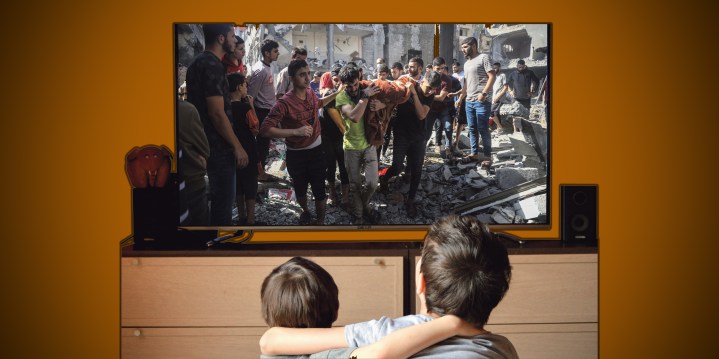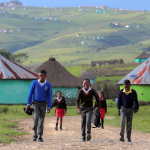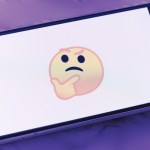EDUCATION OP-ED
See, judge and act — how to help children to think critically and act morally when exposed to violence

Scenes of violence are watched on repeat on the news, while social media befuddle the truth. We need frameworks to navigate this.
Watching the bombing of Gaza and seeing the devastation of the buildings hourly on news channels is horrific. The scenes of adults and young people running into hospitals with young children covered in dust and blood are even more heart-rending. The reality that this has all been going on for months in front of everyone’s eyes is mind-blowing. What are we telling our children when regional and world leaders are powerless to put a stop to this deliberate ongoing death and destruction?
The brutal killing of 1,200 people in Israel on 7 October 2023 must be strongly condemned, and Hamas must regret that action, which has led to such unimaginable devastation. But the disproportional Israeli response cannot easily be morally justified.
During the Covid-19 crisis, disinformation campaigns about the virus posed a threat to fact-based journalism and put human lives at risk. These campaigns muddied the messages about vaccines.
Today, this seems true also in the Gaza war. Disinformation is repeated and amplified, including by influential people, and so the danger is that information based on truth only has a marginal impact.
As adults we somehow need to help children to navigate the terrible violence on repeat and the disinformation swirling around.
Watching so much trauma on our television screens cannot be good, especially for young children. Video games with so much violent content carry age restrictions and, as adults, we have a responsibility to limit what children see on television.
Although the world has become so interconnected, general knowledge and awareness of current affairs are dismally low.
With older children and young people, we need to discuss what we are seeing and reflect on what is happening, how it affects people and what can be done.
At the school level, we need to equip students to become critical and discerning thinkers. In 1969, Neil Postman argued that the best thing that schools can do for children “is to help them learn how to distinguish useful talk from bullshit”. Postman maintained that every day, in almost every way, people are exposed to more “bullshit” than is healthy for them. This comment is even more pertinent today in a world of exploding fake news.
Although the world has become so interconnected, general knowledge and awareness of current affairs are dismally low. Many students are unable to think beyond their immediate and personal concerns. The challenge for schools is to help children become more critical of what is being presented to them online and elsewhere.
In terms of the Gaza war, any useful analysis of the Israeli-Palestinian conflict requires engaging with an unresolved, frustratingly complex struggle between two national movements, each with its own justified claim to the land.
Making decisions
We all make moral decisions every day. Students observe situations, make judgements based on their values and act based on their capabilities and circumstances. But they need a way of thinking about issues that affect their lives and, preferably, one that encourages action.
A form of moral inquiry designed to do this was created by a Catholic priest, Joseph Cardijn (1882-1967), when he started a movement with working-class young people in 1919 that became known as the Young Christian Workers.
Cardijn was concerned with young people for two reasons: Their dignity is most at risk under capitalism and industrialisation; and they were the most likely group to become alienated from the church over its failure to address their daily lives.
Seeing requires objectivity, yet we know that when people see hunger and oppression, we can never be simply objective.
In the see-judge-act method, young people think about the situations that affect them daily and are encouraged to plan and organise specific actions to bring about positive change.
Read more in Daily Maverick: Special needs school in Jordan a testament to peace and understanding
This way of thinking about issues begins with the everyday lived experience of their lives, their issues, their problems and the challenges that they face. In South Africa it can be relationships, gender roles, pregnancy and aspects of HIV/Aids.
The see-judge-act method links young people’s lives at home and their lives at school or work, in a context where these insights are pooled with those of others and build an understanding that is both personal and social.
Young people become aware of the extent to which the structure of their own everyday lives either helps or hinders the experience of a better world. It reminds them of the responsibility to themselves and others to engage in deliberate actions that reduce harm and build dignity. DM
The see-judge-act method
The following steps developed by Catholic priest Joseph Cardijn provide a framework for making moral decisions:
Step 1: See
In the first stage of moral enquiry, we ask the question: What is going on? This step involves taking a hard look at an issue.
Seeing requires objectivity, yet we know that when people see hunger and oppression, we can never be simply objective. When we see poverty, when we see a violation of human dignity, we cannot but be moved. This sensitivity to human suffering motivates us to ask hard questions about the nature and causes of situations.
Seeing requires us to look beyond our present experience or what society thinks is acceptable.
Examples of questions to ask:
- What do I see in my daily life, or in the situation under consideration, that harms the dignity of people?
- What are the underlying causes that keep this harmful situation in place?
Step 2: Judge
The first step describes the situation but is rarely reflected on. Often, we jump into a description of a situation without serious reflection. What do we do with all the information we have gathered in the first step? We need to do more than simply feel bad about a situation. The second stage in moral inquiry is judgement.
In this second stage, the context needs to be considered with moral and religious ideas. We look at reality through moral eyes using faith documents. These sources are our norms for judging reality. This second stage includes reflections on responsibility, which involves considering what we should do now and in the future.
Examples of questions to ask:
- Should this situation be happening?
- What makes it right or wrong?
- Is there anything that we can do to change the situation?
Step 3: Act
Moral enquiry requires thoughtful, careful description, evaluation and attentive response to situations. Having seen and judged the situation, we act on our sense of justice to take concrete action. Some criteria for action are:
- Action should be directed at changing the situation by removing the harm;
- Each action should have the potential for growth for those involved.
Examples of questions to ask:
- Is there anything you can do, no matter how small, to improve the situation?
- How can we uphold the dignity of all involved?
- What action will promote good?
Students can be encouraged to use this approach in dealing with issues in Gaza and Israel. The process will encourage a deeper look at the situation. DM
This story first appeared in our weekly Daily Maverick 168 newspaper, which is available countrywide for R29.





















I love the see-judge-act approach described by Mark Potterton. Think critically and act morally, which is very necessary for young and older. Cardinal Cardijn developed the process for the Young Christian Workers YCW, and Young Christian Youth YCS and it is still commonly used in a faith sharing format in different church programmes where under the “judge” the particular moral or ethical religious perspective is considered. Morality can be too loosely determined by an individual or a group if not linked with a particular belief system. I use the approach consistently and include quotations from Pope Francis on climate change, integral ecology and human and family relationships. A wise approach for a well-(in)formed person.